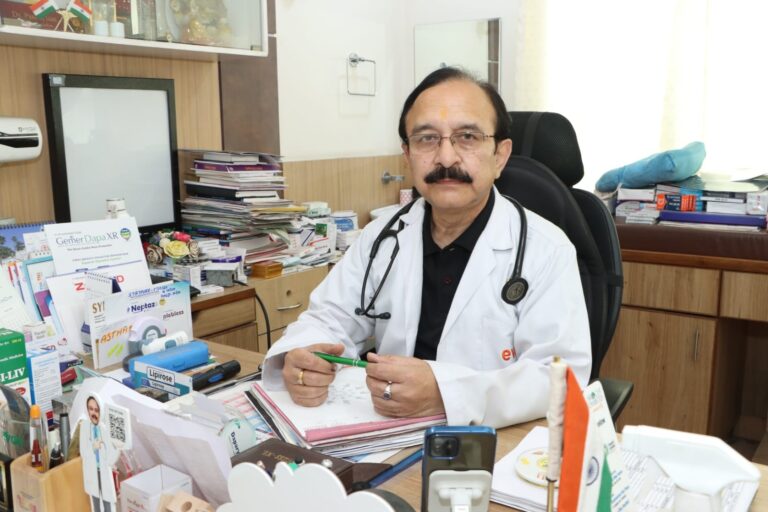diagnosis, treatment, and management of
A wide range of Illnesses
The Internal Medicine department in Evan hospital specializes in the prevention, diagnosis, and treatment of a wide range of adult illnesses and medical conditions. Internists, or internal medicine physicians, are trained to manage complex medical cases and provide comprehensive care for adults. Here is a detailed description of the components and services typically found in an Internal Medicine department:
1. General Internal Medicine:
- Internists serve as primary care physicians for adults, managing both acute and chronic illnesses.
- They provide routine health examinations, preventive care, health screenings, and vaccinations.
- Internists diagnose and treat a variety of conditions such as hypertension, diabetes, heart disease, respiratory issues, gastrointestinal problems, and infections.
2. Subspecialties within Internal Medicine:
- The Internal Medicine department often includes several subspecialties that focus on specific areas of adult health, including:
- Cardiology: Diagnosis and treatment of heart and cardiovascular diseases.
- Endocrinology: Management of hormonal disorders, including diabetes and thyroid conditions.
- Gastroenterology: Treatment of digestive system disorders, including liver diseases.
- Hematology: Diagnosis and treatment of blood disorders.
- Infectious Diseases: Management of infections, including HIV/AIDS, tuberculosis, and emerging infectious diseases.
- Nephrology: Treatment of kidney diseases and hypertension.
- Oncology: Diagnosis and treatment of cancers.
- Pulmonology: Management of respiratory diseases such as asthma, COPD, and lung infections.
- Rheumatology: Treatment of autoimmune and inflammatory diseases, including arthritis and lupus.
3. Diagnostic Services:
- The Internal Medicine department is equipped with a variety of diagnostic tools to identify and monitor medical conditions. These may include:
- Laboratory Testing: Blood tests, urine tests, and other lab work to diagnose diseases and monitor treatment.
- Imaging Studies: X-rays, ultrasounds, CT scans, MRI, and other imaging techniques to visualize internal organs and structures.
- Electrocardiograms (ECG): To assess heart function and diagnose cardiac conditions.
- Endoscopic Procedures: Such as colonoscopy and upper endoscopy to examine the gastrointestinal tract.
4. Chronic Disease Management:
- Internists are skilled in managing chronic diseases that require ongoing care and monitoring. This includes:
- Diabetes Management: Including blood sugar monitoring, insulin therapy, and lifestyle counseling.
- Hypertension Control: Medication management, dietary recommendations, and monitoring for complications.
- Heart Disease Management: Medications, lifestyle changes, and coordination with cardiologists for advanced care.
5. Acute Care and Hospitalization:
- Internists provide care for patients admitted to the hospital with acute illnesses or complications of chronic diseases.
- They coordinate with other specialists as needed to provide comprehensive inpatient care.
- Internal medicine physicians often serve as hospitalists, managing the overall care of hospitalized patients.
6. Preventive Medicine:
- The department emphasizes preventive care to maintain health and prevent disease.
- Internists provide counseling on diet, exercise, smoking cessation, and other lifestyle factors.
- They perform routine screenings for conditions such as cancer, osteoporosis, and cardiovascular disease.
7. Geriatric Care:
- Internists provide specialized care for older adults, addressing the unique medical, social, and psychological needs of the elderly.
- This includes managing multiple chronic conditions, polypharmacy (the use of multiple medications), and mobility issues.
8. Coordination of Care:
- Internists often coordinate care with other specialists to ensure a comprehensive approach to patient health.
- They facilitate referrals, follow-up on specialist recommendations, and integrate various aspects of a patient’s care.
9. Patient Education and Counseling:
- Internists educate patients about their health conditions, treatment options, and preventive measures.
- They provide guidance on managing chronic illnesses, understanding medications, and making informed health decisions.
10. Research and Education:
- Many Internal Medicine departments are involved in clinical research to advance medical knowledge and improve patient care.
- Internists may participate in studies on disease prevention, treatment innovations, and healthcare delivery.
- The department also plays a key role in the education and training of medical students, residents, and fellows, providing comprehensive training in internal medicine.
11. Palliative Care:
- Internists often provide palliative care to manage symptoms and improve the quality of life for patients with serious, life-limiting illnesses.
- This includes pain management, emotional support, and coordination with hospice services when appropriate.
12. Multidisciplinary Approach:
- The Internal Medicine department works collaboratively with other departments such as surgery, psychiatry, radiology, and rehabilitation to provide holistic care.
- Multidisciplinary teams meet to discuss complex cases and develop comprehensive care plans tailored to each patient’s needs.
Overall, the Internal Medicine department in hospitals is dedicated to providing high-quality, patient-centered care for adults, managing a broad spectrum of medical conditions with expertise and compassion. Internists play a pivotal role in ensuring the overall health and well-being of their patients through preventive care, acute and chronic disease management, and coordination of multidisciplinary care.

General Medicine
